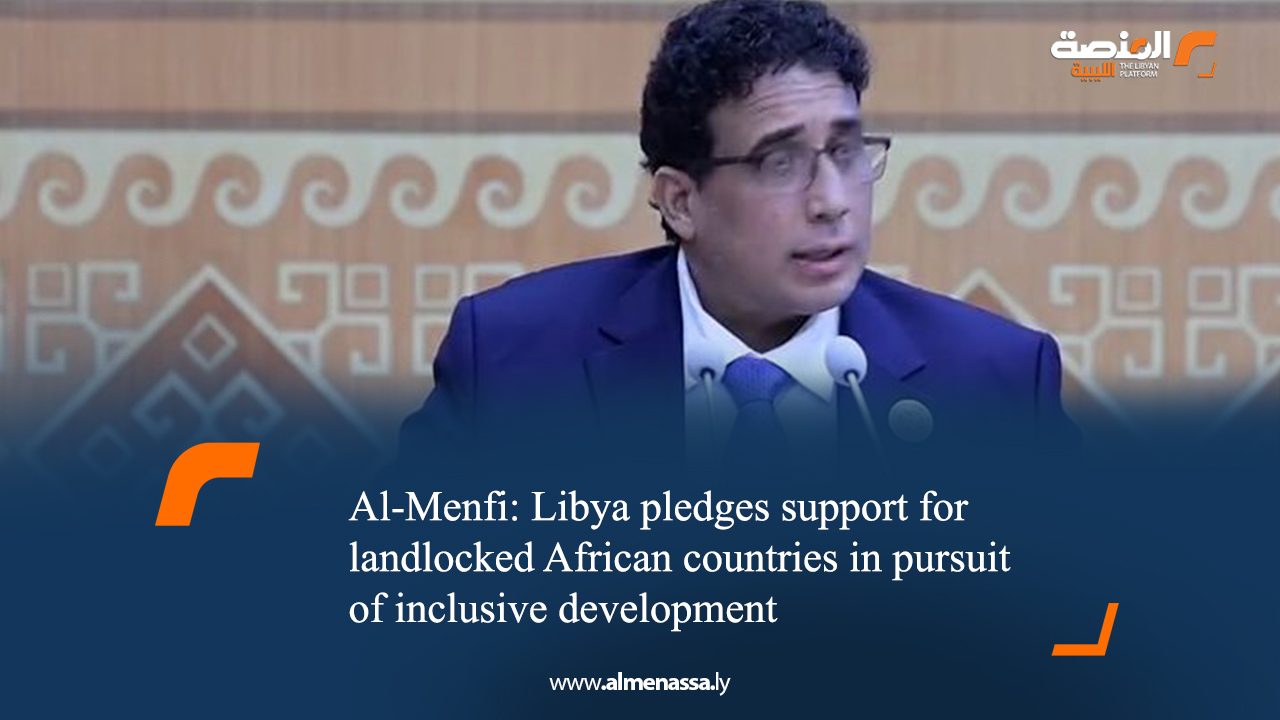Libya’s Presidential Council chief, Mohamed Al-Menfi, has reaffirmed Libya’s commitment to advancing regional development, particularly in the Sahel and sub-Saharan Africa, through Libya’s sovereign investment portfolios across the continent.
Speaking at the Third United Nations Conference on Landlocked Developing Countries in Avaza, Turkmenistan, Al-Menfi called for unprecedented global solidarity in the face of mounting challenges. “This is a pivotal moment to forge a new compact based on regional integration and genuine partnership,” he said.
Libya as a bridge for regional transformation
Al-Menfi underscored Libya’s strategic location on the southern Mediterranean coast, describing it as a vital link between African landlocked nations and global markets. He highlighted Libya’s role in planning cross-border infrastructure projects, including energy corridors and transport networks connecting inland economies to Mediterranean ports.
“We are fully prepared to mobilize our national assets to help build a more balanced global system,” he said. “Sustainable development must be a guaranteed right for all, and Libya is actively contributing to that goal.”
Complex challenges facing landlocked nations
Al-Menfi acknowledged the unique constraints faced by landlocked developing countries, particularly the lack of direct maritime access, which can inflate international trade costs by up to 50% compared to coastal states. This, he noted, undermines competitiveness and hampers the development of transport and logistics infrastructure.
In Africa, these challenges are further exacerbated by climate change, armed conflict, and the migration of skilled labor factors that deepen development gaps and increase economic fragility.
Africa’s ambitious response, and Libya’s central role
Despite these obstacles, Al-Menfi insisted that Africa is mobilizing. He praised the efforts of the African Union, the NEPAD development agency, and regional economic blocs for advancing transformative initiatives such as the Continental Free Trade Area and Agenda 2063.
“Libya is an active member of the Arab Maghreb Union and the Community of Sahel-Saharan States,” he said. “We join this global forum with a deep sense of regional and international responsibility.”
A call for reform and innovative financing
Al-Menfi urged the international community to strengthen regional and global agreements that guarantee freedom of transport, eliminate unfair administrative and customs barriers, and facilitate technology transfer, all while respecting national sovereignty and ensuring non-discrimination.
He also emphasized the need to modernize trade systems through advanced technologies. Libya, he announced, is ready to contribute to initiatives such as the African Digital Trade Corridor, which aims to integrate landlocked countries into global supply chains and streamline the movement of goods and services.
A new economic model for a changing world
In closing, Al-Menfi called for a shift toward a more resilient economic model, shaped by the lessons of recent global crises such as COVID-19 and climate disruption. He proposed a three-pronged approach:
– Establishing an international fund to support logistics infrastructure and renewable energy projects in landlocked nations, with concessional financing terms.
– Reforming the global financial system to ease debt burdens and offer fair lending conditions.
– Activating flexible funding mechanisms that respond to climate and geopolitical challenges, with priority access for landlocked countries in development programs.


